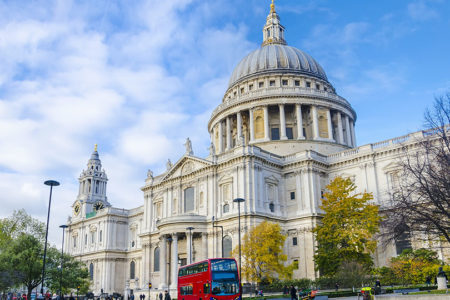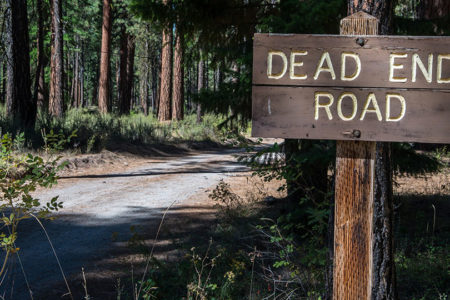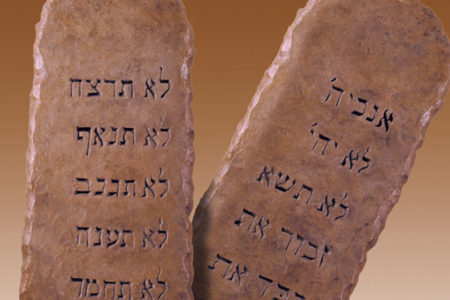Open Theism or Veiled Heresy?
Have you ever wondered whether you made that important decision in your life or whether God made it? Whether you have the “freedom” to decide for yourself or you make the choices God has already determined for you? If you have, then you have experienced the tension that has produced Open Theism—a relatively new theological view that enlarges the scope of man’s free will and claims that God does not know the future.
Initiated in 1980 (The Openness of God by Richard Rice), Open Theism emerged on the scene of evangelical theology in the 1990s, hitting center stage in 1994 with the publication of The Openness of God: A Biblical Challenge to the Traditional Understanding of God.1
Clark Pinnock, one of the authors, espouses Open Theism “because [God] gives liberty to his creatures, is happy to accept the future as open, not closed, and a relationship with the world that is dynamic, not static.”2
But is “openness” biblical?
Historical Backdrop
For hundreds of years, people have wrestled with two seemingly incompatible teachings of the Bible: God’s overarching, omniscient determining of all that happens in His creation (called “providence” or “foreknowledge”) and man’s freedom and responsibility to choose his own path (called “free will”). The biblical antinomy presents divine sovereignty and human responsibility as a both/and situation. But human reasoning seeks an either/or.
The Scriptures depict God as a totally sovereign and all-knowing Creator “who works all things according to the counsel of His will,…to the praise of His glory” (Eph. 1:11–12) and for His own good, as well as that of His creation. Those who emphasize these elements are usually identified with French Protestant reformer John Calvin (1509–1564).
However, the Scriptures also clearly depict human responsibility: “For God so loved the world that He gave His only begotten son, that whoever believes in Him should not perish but have everlasting life” (Jn. 3:16). Consequently, others believe that a deterministic view of the Creator and His cosmos reduces the responsibility of man and the significance of God’s glory. These people lean toward what they perceive to be a fairer position, which emphasizes the autonomous nature of human choices. They are usually identified with Dutch theologian James Arminius (1560–1609).
Open Theism is a recent attempt to find an acceptable middle ground.
The Arguments
Clark Pinnock argues that Open Theism is necessary for God’s creatures to be significantly free personal agents. Openness means God does not determine, indeed, does not even know, an outcome until free personal agents make their choices. Advocating openness as the best solution to the tension of divine sovereignty versus human responsibility, Gregory Boyd sees “the openness of God to the future as one of his attributes of greatness,” because “a God who…is willing to engage in an appropriate element of risk is more exalted than a God who faces an eternally settled future.”3
Boyd insists that openness does not reduce God’s foreknowledge; rather, since the future actions of free personal agents have not yet happened, nothing exists in that realm for God to know.4
However, Open Theism poses a serious threat to the biblical view of God, who knows everything—actual and possible—effortlessly and equally well. The issue, in fact, is central and detrimental, rather than peripheral and incidental, to evangelical theology.
Bruce Ware, an opponent of Open Theism, wrote,
Our conception of his providence will necessarily impinge upon every-day Christian life and experience in a multitude of ways….To get it wrong here is to create a thousand related problems, both theological and practical.5
Classical Theism (what we believe) teaches that God’s sovereign omniscience, hence His foreknowledge, takes precedence over man’s freedom; that God’s nature must not be diminished by overemphasizing man’s responsibility. The fact that the traditional view of God is sometimes misstated or caricatures God as “an aloof monarch, removed from the contingencies of the world, unchangeable in every aspect of being,…an all-determining and irresistible power, aware of everything that will ever happen and never taking risks,”6 does not mean that classical evangelicalism ignores the tensions created by biblical revelation.
Openness does not actually solve this biblical antinomy. It simply pushes the discussion to another point on the spectrum. The issue now becomes, What constitutes a future free action as opposed to a future nonfree (determined) action?
According to open theist William Hasker, “An agent is free with respect to a given action at a given time if at that time it is within the agent’s power to perform the action and also in the agent’s power to refrain from the action.”7
However, open theists espouse an improper, virtually libertarian, concept of man’s freedom. John Frame, in his book No Other God, explained:
Libertarians maintain that only if we have this kind of radical freedom can we be held responsible for our actions. Their principle is simple enough: if our decisions are caused by anything or anyone (including our own desires), they are not properly our own decisions, and we cannot be held responsible for them.8
In truth, only God is truly free. Man’s freedom is relative. Ultimately, the relationship between God’s sovereign and omniscient foreknowledge and man’s freedom and responsibility is beyond the scope of creaturely (human and angelic) comprehension. since creaturely freedom is obviously limited (gravity, for example), it is more appropriate to admit the antino-my, exalt God’s character, and allow human autonomy to be diminished to the biblically decreed responsibility.
The Dangers
1. Open Theism diminishes divine glory.
It credits God’s creativity and resourcefulness when He successfully “entices” free moral agents to act in keeping with His ways and plans.
Asking what happens “if God’s success rate turns out to be low,” Ware noted that open theists acknowledge, “Freedom makes it possible that horrible and pointless evil can occur. While God may try to avoid such horrendous suffering, they say, there simply are many times when he cannot do so.”9 God, then, must accept responsibility for the failure of His plans.
Instead of an awesome God who effortlessly controls and directs all that comes to pass, we must settle for a God who works overtime to stay ahead of all the previously unknown and non-existent free, moral decisions that are made every minute of every day.
2. Open Theism diminishes human hope.
Our precious Romans 8:28 must now read, “most things work together for good, if God can successfully entice the men around me,” instead of “And we know that [God causes] all things [to] work together for good to those who love God.”
We will not be able to say, as did Joseph, “But as for you, you meant evil against me; but God meant it for good, in order to bring it about as it is this day, to save many people alive” (Gen. 50:20).
If God is only partially successful in effecting His purposes, as open theists imply, then He may not be successful in accomplishing His purposes for my life. But the apostle Paul affirmed exactly the opposite: “Being confident of this very thing, that He who has begun a good work in you will complete it until the day of Jesus Christ” (Phil. 1:6).
Rather than having a God who does not know what has not yet happened, it is comforting, if a bit fearful, to know “there is no creature hidden from His sight, but all things are naked and open to the eyes of Him to whom we must give account” (Heb. 4:13).
3. Open Theism diminishes prophetic confidence.
Gone are the love for God’s Word and His promises for the future, which we love to read and ponder. said one critic, “Just imagine the hymn writer trying to lift up the downcast—’I know not what the future holds, but I know Who also doesn’t know much about it either.’”
4. Open Theism diminishes Israel’s future.
Having repeatedly rebelled against and frustrated God’s plan for her, could Israel have any shred of hope that He could fulfill His promises to her? One would have to acknowledge the repeated failure of God’s creativity and coaxing in the past and to despair of His ability in the future.
The inevitable direction this thinking takes is that ownership of the land of Israel is up for grabs because God does not know the future and did not predetermine the end result.
On the other hand, Paul said Israel’s current spiritual condition is part of God’s inscrutable plan to glorify Himself: “so then it is not of him who wills, nor of him who runs, but of God who shows mercy. Therefore He has mercy on whom He wills, and whom He wills He hardens” (Rom. 9:16, 18).
Open Theism is an attempt, at the expense of Classical Theism’s view of God, to craft a more acceptable form of human freedom. But in the end, it diminishes God’s glory in order to elevate man’s freedom. It is an attempt to reason out a biblical antinomy that is completely beyond creaturely comprehension. And, in its attempt to do so, it diminishes the believer’s confidence in both God’s beneficial providence and His prophetic Word.
ENDNOTES
- Bruce A. Ware, God’s Lesser Glory: The Diminished God of Open Theism (Wheaton, Il: Crossway Books, 2000), 31.
- Clark Pinnock, “Systematic Theology” in The Openness of God: A Biblical Challenge to the Traditional Understanding of God, Clark Pinnock, Richard Rice, John Sanders, William Hasker, David Basinger (Downers Grove, Il: InterVarsity, 1994), 103–104.
- Gregory A. Boyd, God of the Possible (Grand Rapids, MI: Baker Books, 2000), 14–15.
- Ibid., 16–17.
- Ware, 13.
- Pinnock, 103.
- William Hasker, “A Philosophical Perspective” in The Openness of God, 136–137.
- John M. Frame, No Other God: A Response to Open Theism (Phillipsburg, NJ: P&R Publishing, 2001), 121. 9 Ware, 222–223.







